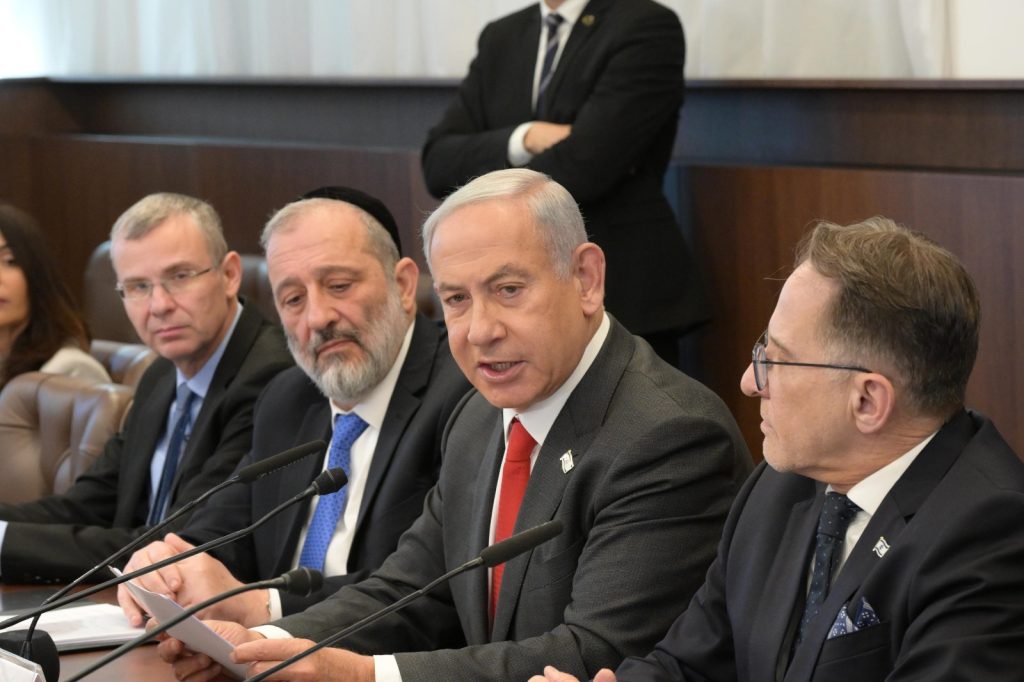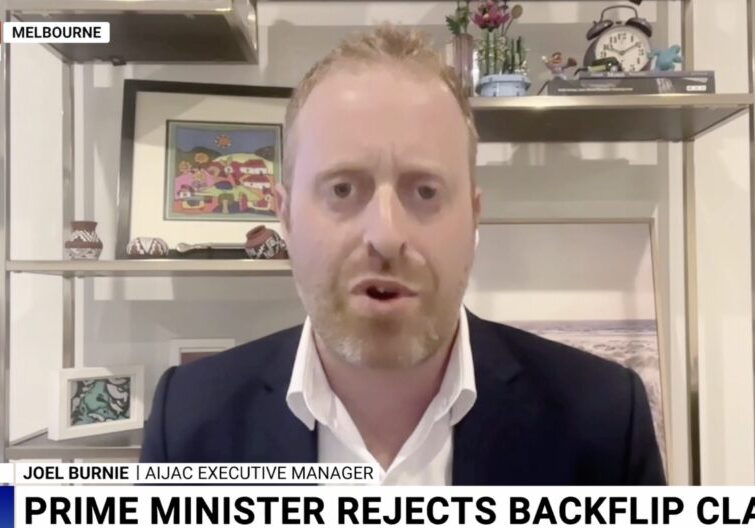Australia/Israel Review, Featured
Editorial: Israel’s new government and the “Netanyahu Doctrine”
Jan 25, 2023 | Colin Rubenstein

The formation of Israeli Prime Minister Binyamin Netanyahu’s new Government in the final days of 2022 seems to have brought, at least for now, an end to the political instability that resulted in five Israeli elections since 2019.
Unlike the Bennett/Lapid unity Government that preceded it, the new coalition has a solid Knesset majority and consists of parties with broadly compatible policy priorities and few incentives to bring down the ruling coalition.
It consists of Likud, the two ultra-Orthodox parties Shas and United Torah Judaism, and three right-wing factions from the national religious camp – Religious Zionism, Otzma Yehudit (“Jewish Power”) and Noam. Ministries and deputy ministries have been given to a number of controversial politicians with radical agendas. However, Netanyahu has vowed to block any policies he considers to be extreme, has already acted to do so on some key issues, and can justifiably point to a track record of governing mostly towards the centre in his previous governments.
Nonetheless, this coalition has already led to difficult debates inside Israel, and some major controversies. This is very evident from the aftermath of Justice Minister Yariv Levin’s announcement that he will move rapidly forward with a program of reforms that would dramatically revise the balance of power between Israel’s judicial and legislative/executive branches. We hope and expect that, despite all the current protests, anger, anxiety, and even hysteria, Israel’s vibrant 75-year-old democracy can ultimately handle such difficult issues and differences in a way that respects everyone’s core interests and democratic rights.
Meanwhile, regardless of domestic controversies, Netanyahu returns to the premiership with a number of publicly articulated foreign policy and security priorities. Among them are: Seeking to expand the number of countries signed on to the landmark Abraham Accords, with a focus especially on Saudi Arabia; looking for ways to strengthen relations with the Biden Administration and coordination with the Pentagon; and developing strategies and options to counter the Iranian nuclear threat, along with the conventional and unconventional military threats from Iran’s proxies in Lebanon, Syria and Gaza.
Maintenance of Israel’s alliance with the US and other Western countries remains crucial for advancing these key Israeli foreign policy and security objectives – providing a strong motivation for Netanyahu to hold extreme coalition partners in check.
On the Iran front, the international community has, fortunately, already been rapidly moving closer to Israel’s more realistic and tougher line. In the face of runaway Iranian nuclear violations, exports of drones to Russia, human rights abuses, hostage-taking, and jailing and executions of political enemies, there is a major rethink going on in Washington, Europe and elsewhere.
Since October 2022, and for the first time since US President Joe Biden took office in Jan. 2021, the US, Europe and Canada have all been repeatedly adding new rounds of sanctions on Iran related to both its human rights abuses and its military support for Russia’s war against Ukraine.
Further, US Secretary of State Antony Blinken has publicly conceded that the US’s wrong-headed efforts to persuade Iran to agree to a partial return to the 2015 JCPOA nuclear deal in exchange for sanctions relief is no longer “on the agenda as a practical matter.”
This is welcome news, given that Teheran had exploited US reluctance to risk angering Teheran during negotiations as an opportunity to stockpile enough enriched uranium, as of now, to build an estimated four bombs (with some minimal additional processing).
Meanwhile, an initiative to emulate the US decision in 2019 to proscribe Iran’s Islamic Revolutionary Guard Corps (IRGC) as a terrorist organisation is snowballing through Europe.
The justification and necessity for such a designation is clear. As Kasra Aarabi of the Tony Blair Institute for Global Change recently put it:
“[The] IRGC is a violent, Islamist-extremist organisation that operates no differently to… Islamic State (ISIS), al-Qaeda and Hizbullah. This is apparent from its formal programme of indoctrination designed to radicalise members to adopt its hardline Islamist-extremist ideology as well as its use of terrorism, militancy, hostage-taking and hijacking as a modus operandi.”
On Jan. 10, German Foreign Minister Annalena Baerbock said Germany was working to clear legal hurdles to having the IRGC placed on its terror list. On Jan. 12, the UK’s House of Commons passed a unanimous motion urging the Government to proscribe the group. On Jan. 18, the European Parliament voted overwhelmingly for a resolution to do the same. The EU is also planning a new tranche of sanctions specifically targeting the IRGC.
Here at home, the Albanese Government has not remained silent on Iran. Australia commendably imposed targeted sanctions on six Iranians and two Iranian entities over human rights abuses on Dec. 10, and has since repeatedly and emphatically condemned the execution of Iranian protesters and other rights abuses. However, Canberra can do much more. We now risk lagging behind our allies on proscribing the IRGC, something many Australian politicians outside the Government are now urging. We should also be sidelining our commitment to the obsolete JCPOA, while increasing coordination with our allies as they step up the pressure on the Iranian regime over its extremely dangerous rogue behaviours.
With Teheran closer to building a bomb than ever, the need has never been more urgent.
At the same time, the return of Netanyahu as Israel’s leader reinforces the Jewish state’s “Netanyahu doctrine” on Iran – a policy actually supported across the political spectrum. This doctrine states that Israel will never allow Iran to build nuclear weapons, and will consider every defence option necessary to prevent this – implicitly including military force.
That path of last resort, which once seemed so remote, edges closer with every step Iran takes towards nuclear weapons capabilities. Given this, Israel needs to be cultivating understanding and support from abroad on Iran for the day when this last resort option might become necessary – a requisite that is doubtless well understood by Netanyahu and other policymakers in the new Israeli Government.






